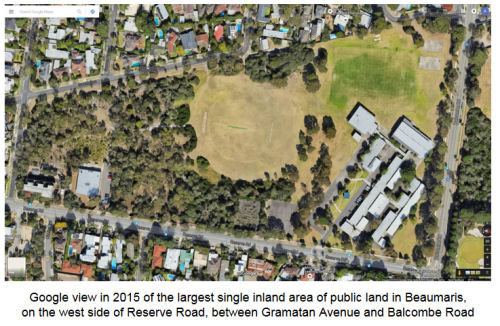Broken system fails everyone, not just international student and backpacker victims of wage theft
Senior law lecturer at UNSW, Bassina Farbenblum says, "Our study confirms that Australia has a large, silent underclass of underpaid migrant workers,” commenting on a report entitled, "Migrant Worker Justice Initiative." The authors do not question the impact on Australians of this corrupt industrial and academic underbelly, but observe complacently, that if Australia is to "position itself as the destination of choice for international students and backpackers, reforms must be urgently implemented to prevent wage theft and enable migrant workers to report and recover unpaid wages." This report would benefit from wider and more historical context: When most wages in Australia were regulated by state awards, and strong unions defended Federal awards, there was very little illegal labour, hence little motivation to import cheap labour. It was easy to enforce written awards that covered entire industries and occupations, and were regulated by dedicated entities. This changed when Kennett abolished Victorian State Awards in 1993, setting the scene for Howard's Workchoices, and going on to widen the use of the corporations clause in the Australian constitution, which exempted corporations from many employer obligations. (See /node/4612.) The privatised for-profit university system gave up on real research in favour of importing students like cash-cows, to pay large fees and rent university owned apartments. Many of these students had to work any conditions in order to survive and pay their fees, fearing that if they failed to retain student status, they would be deported. A win-win situation for exploiters all round, as it drove down wages for everyone. In fact, if 'reforms' were successfully implemented to prevent wage theft from migrant workers' we would soon see a huge reduction in the numbers of migrant workers. It's all slave labour under other names. (Candobetter.net Editor.)
An overwhelming number of international students and backpackers in Australia are suffering wage theft in silence, a landmark study by UNSW Sydney and UTS has found.
Fewer than one in 10 migrant workers took action to recover unpaid wages even though most know they are being underpaid, according to the report Wage Theft in Silence.
“Our study confirms that Australia has a large, silent underclass of underpaid migrant workers,” said senior law lecturer at UNSW, Bassina Farbenblum. “The scale of unclaimed wages is likely well over a billion dollars.”
The report draws on the first large-scale national survey of temporary migrant workers, with 4322 respondents from 107 countries working across all Australian states and territories. It is authored by Farbenblum and Laurie Berg, a senior law lecturer at the University of Technology Sydney (UTS).
Migrant workers comprise up to 11% of the Australian labour market. The authors’ previous report found most international students and backpackers are underpaid, with one in three earning about half the legal minimum wage.
The new report paints a bleak picture for the few who try to recover their unpaid wages. The study reported that for every 100 underpaid migrant workers, only three went to the Fair Work Ombudsman. Of those, well over half recovered nothing.
The authors conclude that for most migrant workers it is neither possible nor rational to try to claim their unpaid wages through the forums that currently exist.
“The system is broken,” said Laurie Berg. “It is rational for most migrant workers to stay silent. The effort and risks of taking action aren’t worth it, given the slim chance they’ll get their wages back.”
“There is a culture of impunity for wage theft in Australia. Unscrupulous employers continue to exploit migrant workers because they know they won’t complain,” said Bassina Farbenblum.
The study dispels the popular assumption that few migrant workers would consider coming forward. In fact, though few had actually taken action, a majority (54%) were open to trying to claim unpaid wages. The study identified the key barriers that prevented them from coming forward.
“The findings are deeply troubling but give cause for optimism, because they reveal a path forward,” said Laurie Berg. “The study indicates that some of the most significant barriers to wage recovery can be practically addressed.”
The most cited barriers were not knowing what to do and concerns about the amount of effort involved. However, more than a quarter said they would not speak up because of fears of losing their visa.
Migrant workers’ reluctance to come forward was not explained by poor English or foreign culture. In fact, Asian migrants were most willing to come forward.
The report concludes that if processes and support services are improved, and immigration safeguards strengthened, more migrant workers would report and seek redress for wage theft in the future.
The authors observe that if Australia is to position itself as the destination of choice for international students and backpackers, reforms must be urgently implemented to prevent wage theft and enable migrant workers to report and recover unpaid wages.
They urge the government, the education sector and business to act swiftly to implement the report’s recommendations.
The report is available at the Migrant Worker Justice Initiative (www.mwji.org). For further information on a new initiative by the education sector to address wage theft see https://www.mwji.org/international-students-in-australia.
About the survey:
· Anonymous, online survey of 4,322 people who worked in Australia on a temporary visa
· Available in 12 languages as well as English
· 2,392 respondents were international students; 1,705 were enrolled at a university and 523 at a vocational or English-language college
· 1,440 respondents were backpackers (Working Holiday Makers).

 Citizens wearing red - to show anger - at the school site at 6:45 a.m. on Monday, 24 October 2016 will deplore the 229 trees' axing, after Government's secretive, anti-environment prelude to its attack. The State Government knew full well that all of Victoria’s municipal councils would be in caretaker mode when they arranged the present scheme for removing the 229 trees proposed. In that mode, the Council could not take out an injunction. The term of all Bayside City councillors ends today, at the declaration of the poll. The new Council cannot act until it first meets and its councillors have taken the oath, or affirmation, of office. It seems the deadline for lodging an application for that was 2:00 pm yesterday. The work is scheduled to start at 6:45 am on Monday. The Beaumaris Conservation society has a
Citizens wearing red - to show anger - at the school site at 6:45 a.m. on Monday, 24 October 2016 will deplore the 229 trees' axing, after Government's secretive, anti-environment prelude to its attack. The State Government knew full well that all of Victoria’s municipal councils would be in caretaker mode when they arranged the present scheme for removing the 229 trees proposed. In that mode, the Council could not take out an injunction. The term of all Bayside City councillors ends today, at the declaration of the poll. The new Council cannot act until it first meets and its councillors have taken the oath, or affirmation, of office. It seems the deadline for lodging an application for that was 2:00 pm yesterday. The work is scheduled to start at 6:45 am on Monday. The Beaumaris Conservation society has a 
 This article describes an example of the serious and inhumane impact, in the form of crisis involving several individuals, and a specific suburb and hospital system, of Australian immigration policy. The government is maintaining a policy of high mass immigration contrary to the wishes of the majority of citizens. Citizens have no useful outlet and no effective parliamentary representation on this.
This article describes an example of the serious and inhumane impact, in the form of crisis involving several individuals, and a specific suburb and hospital system, of Australian immigration policy. The government is maintaining a policy of high mass immigration contrary to the wishes of the majority of citizens. Citizens have no useful outlet and no effective parliamentary representation on this.
Recent comments